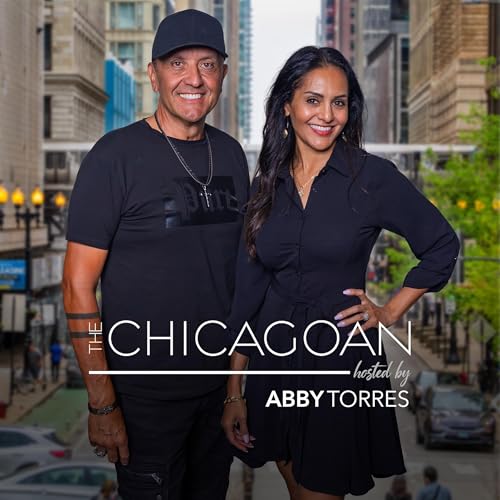Julian arrived in the U.S. at two and a half with his parents and two sisters, each carrying a small bag and a single change of clothes. “We came here with nothing but the clothes on our back,” he says. Catholic Charities gave the family about $200 and a pat on the back: welcome to America. They landed in Miami, then moved to Chicago, settling in Northlake between Melrose Park and Elmhurst.
His father worked two full-time jobs for a decade, seventeen hours out of the house, while his mother worked too. Home was tight-knit and musical. Salsa spun on weekends. Disco filled the living room. “We get up every morning, hug, kiss each other,” Julian says. The soundtrack was family first, work second, music always.
Work started early. At eight, he delivered newspapers and ran a neighborhood snow-removal crew, paying friends five dollars on ten- and fifteen-dollar driveways. By 13 he was at McDonald’s; by 14 a busboy; and that same year, a DJ—thanks to a dream. “I had a dream…come up with a name,” he recalls. The name was Midnight Express. He borrowed two household record players, split speakers across the room, and learned the hard way that beatmatching isn’t turning volumes up and down.
He promoted as hard as he mixed. The first event was inside a Chinese restaurant on St. Charles Road. Flyers were quarter-sheet photocopies. Admission was five dollars. Two to three hundred kids showed. The lesson stuck: create the room, and people will come. He kept going—clubs, radio, concerts—staying visible through each new cycle of nightlife.
For Julian, the craft is not a gig. “DJing is my life…music is the gateway to my soul,” he says. That mindset is why he still moves crowds across generations. He doesn’t chase trends; he shows up, programs a feeling, and builds spaces where people connect.
Lockdown tested that resolve. On the first Saturday of the citywide shutdown, Julian turned on a livestream. It became a weekly ritual—Julian’s House Party—where birthdays got shouted out, families danced in living rooms, and kids discovered house classics with their parents. “We had at one point 1.3 million viewers worldwide,” he says. When people needed connection, he built a window and held it open.
Then he scaled the idea outdoors. Drive-in concerts filled the vast lot at SeatGeek Stadium with five to six hundred cars, ten-foot squares between them, concert sound and video walls up front, food trucks on site. They sold out five times, including a 39-degree New Year’s Eve with Stevie B, the Cover Girls, and the OutHere Brothers. “We were the only New Year’s Eve party in the entire country,” he says. Snow plows, masks, and house anthems; Chicago showed up.
Giving back runs in parallel. Through the Julian “Jumpin” Perez Foundation, his team has raised funds for coats, backpacks, and groceries. “Your neighbor could be the one that can’t feed the kids,” he says. Pride keeps people quiet; music lets help move quietly, quickly.
The habits behind the scenes are simple and strict. Julian doesn’t drink or smoke. He’s obsessive about learning; he holds licenses in real estate, mortgage brokerage, even private investigation. He builds with a small team he trusts. “You don’t want to be the smartest person in the room,” he says. “Keep them and hold them dear to you.”
His advice to anyone chasing a craft or a business is blunt. “If I can do it, you can do it,” he says. Don’t wait for permission. Don’t accept ceilings. “I dare you to tell me you can’t do that; watch me.” If you’re working 60–70 hours a week making someone else money, rethink your path. Invest in your own platform. As Julian puts it, “At the end of the day, you’re just a number. Build something of your own.”
Three moves stand out. First, create the room: pick a date, book a space—physical or digital—and host your audience. Second, program...
 29 m
29 m 17 m
17 m 34 m
34 m 28 m
28 m 33 m
33 m 26 m
26 m 25 m
25 m 27 m
27 m
